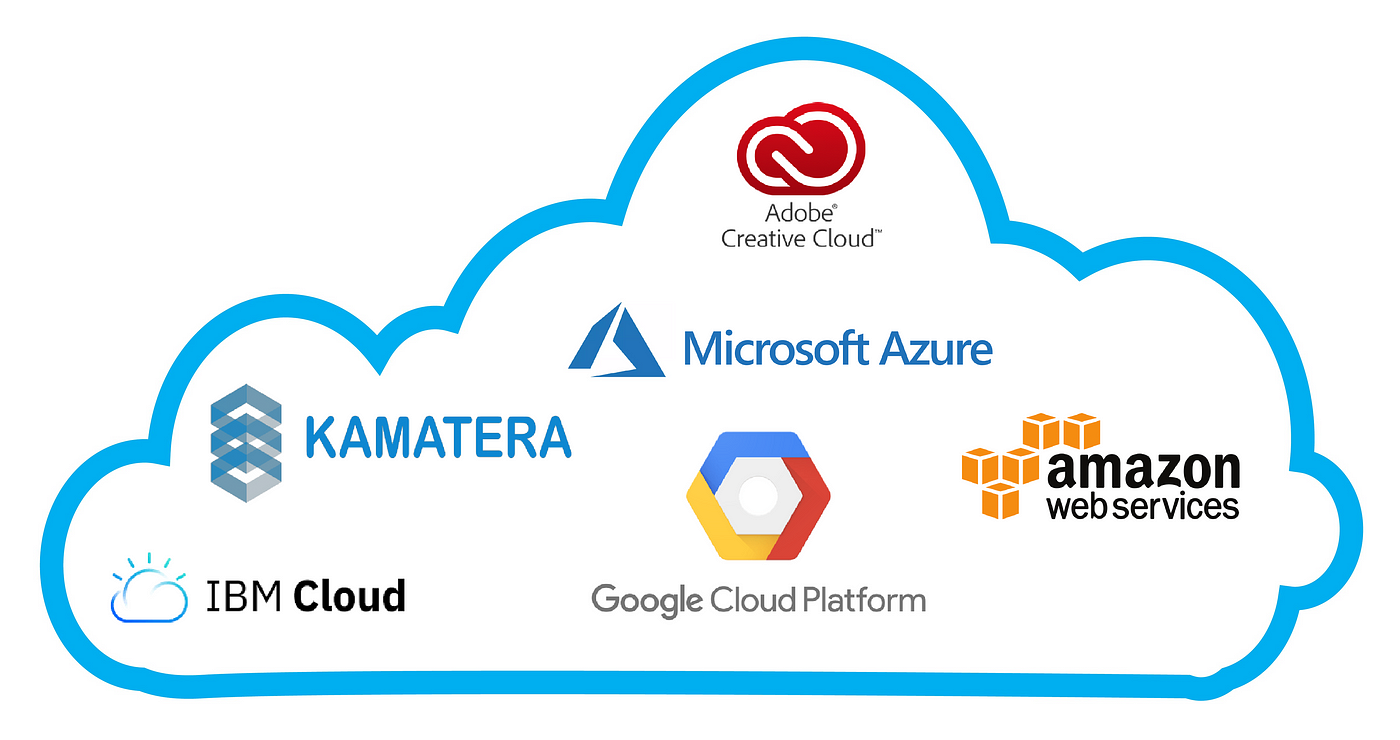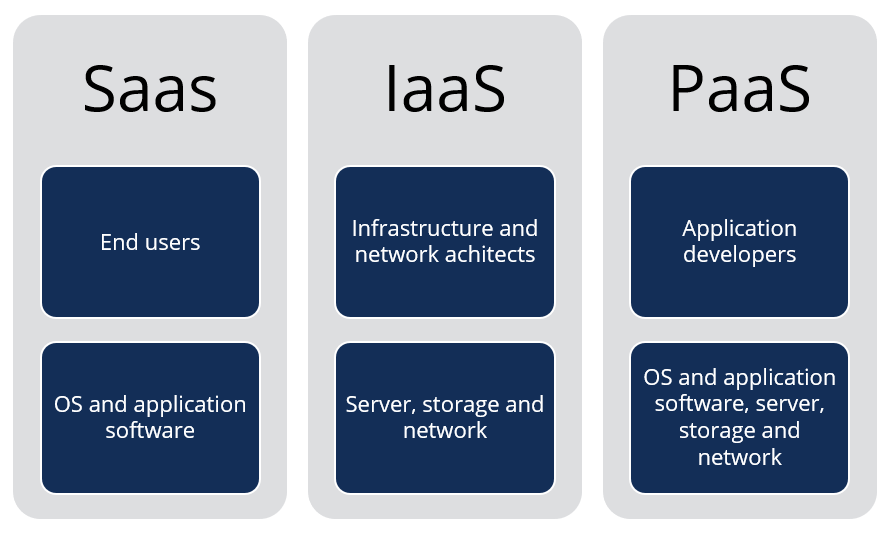Utilizing the Prospective of Cloud Services for Competitive Side in the marketplace

Advantages of Cloud Solutions

Cost-efficiency is one more significant benefit of cloud solutions, as business can prevent large upfront financial investments in software and hardware. Instead, they can choose a pay-as-you-go version, just paying for the resources they eat. This cost-effective strategy allows companies to allocate funds more tactically, buying various other areas that drive development and advancement. In general, the advantages of cost-efficiency, versatility, and scalability make cloud solutions a useful property for companies looking for a competitive edge in today's vibrant market landscape.
Cloud Movement Approaches
Cloud movement requires precise preparation and smooth execution to make sure a smooth shift of digital assets to cloud-based environments. One common strategy is the "Raise and Change" technique, where existing systems are relocated to the cloud without considerable adjustments.
Alternatively, the "Replatforming" method includes making minor modifications to applications to optimize their efficiency in the cloud setting. This approach strikes an equilibrium in between speed and optimization, allowing companies to gain from cloud capacities while decreasing interruptions.
For more facility systems, the "Refactoring" method, likewise called "rearchitecting," involves upgrading applications to be cloud-native. While this technique requires even more time and sources, it can optimize the advantages of scalability, flexibility, and cost-efficiency that cloud systems offer.
Eventually, selecting the appropriate cloud migration approach relies on elements such as the organization's objectives, budget, timeline, and technological demands. By carefully reviewing these considerations, businesses can effectively transition to the cloud and get a competitive side out there.
Enhancing Information Protection Steps
After implementing cloud movement strategies, organizations need to prioritize improving data safety gauges to protect their electronic assets successfully. Data safety is extremely important in the electronic age, specifically when leveraging cloud services that include sending and saving sensitive details. To bolster data safety, companies need to think about applying encryption methods to secure information both at remainder and in transit. Security guarantees that even if unauthorized celebrations access the information, it continues to be unintelligible and pointless. In addition, implementing multi-factor verification includes an added layer of safety by needing customers to give multiple forms of verification before accessing sensitive details.
Regular security audits and susceptability analyses are important to recognize and address any weak factors in the information protection facilities without delay. Educating staff members on best techniques for information safety and implementing strict accessibility controls can additionally alleviate the danger of internal information breaches. By spending in robust data protection Discover More procedures, organizations can impart count on amongst their consumers and stakeholders, inevitably gaining an one-upmanship out there.
Leveraging Cloud for Scalability
Executing cloud services permits organizations to dynamically readjust resources according to require, enhancing scalability and maximizing operational performance. Scalability in the cloud context refers to the capacity to rapidly and easily increase or reduce sources as needed, offering companies with the adaptability to satisfy transforming requirements. Cloud systems offer scalability via features like auto-scaling, which automatically readjusts resources based upon predefined conditions such as boosted traffic or workload spikes. This capacity eliminates the requirement for companies to purchase added equipment or software that might remain underutilized during typical procedures.
Additionally, leveraging cloud scalability allows services to react promptly to market fluctuations, seasonal demands, or unexpected development, making sure undisturbed solution distribution without sustaining unneeded costs. By scaling resources up or down in real-time, organizations can maintain ideal performance degrees while controlling expenditures. Scalable cloud services encourage firms to introduce quickly, deploy new applications efficiently, and adjust to progressing organization demands with dexterity. Generally, embracing cloud scalability is a tactical relocation that fosters competition and settings companies for lasting development in today's dynamic market landscape.

Applying Cloud-Based Collaboration
Collaboration in modern company environments has undergone a substantial transformation through the integration of cloud-based technologies. Cloud-based cooperation devices have changed the way groups interact, offering real-time interaction, record sharing, and task administration capacities no matter physical place. By carrying out cloud-based partnership services, companies can improve productivity, boost performance, and enhance workflows.
One of the key benefits of cloud-based cooperation is its capability to break down communication barriers among staff member. With features like instant messaging, video clip conferencing, and online whiteboards, workers can collaborate seamlessly and remain connected no moved here matter where they are situated. Cloud-based collaboration tools promote simple accessibility to shared papers and resources, allowing group members to function together on tasks in a synchronous way.
Additionally, cloud-based cooperation promotes flexibility and dexterity within companies by enabling remote job and fostering cross-functional synergy. Employees can work together in real-time, important link share responses promptly, and make decisions collectively, leading to quicker improved and problem-solving innovation. On the whole, executing cloud-based cooperation is vital for modern services looking to stay affordable in today's busy and interconnected market landscape.
Conclusion
Finally, the application of cloud solutions offers many advantages for organizations seeking a competitive edge in the marketplace. By implementing cloud migration methods, boosting information safety actions, leveraging scalability, and utilizing cloud-based partnership, organizations can improve efficiency, minimize expenses, and remain ahead of the competition. Embracing the potential of cloud services is vital for companies wanting to be successful in today's quickly progressing service landscape.
The capacity to harness the capacity of cloud services supplies services many benefits, from boosted agility and scalability to boosted partnership and data security. As companies browse the complexities of cloud movement and check out innovative methods to leverage cloud technology, the inquiry emerges: How can businesses successfully make use of cloud solutions to not just keep up with but additionally surpass their rivals in the dynamic industry?
Furthermore, the flexibility supplied by cloud services allows companies to gain access to information and applications from anywhere, advertising remote work and cooperation among groups found in various geographical places. - cloud services press release
By carrying out cloud migration methods, enhancing data safety and security actions, leveraging scalability, and making use of cloud-based partnership, organizations can improve effectiveness, lower costs, and remain in advance of the competition. Accepting the possibility of cloud services is vital for companies looking to be successful in today's quickly evolving company landscape.